English
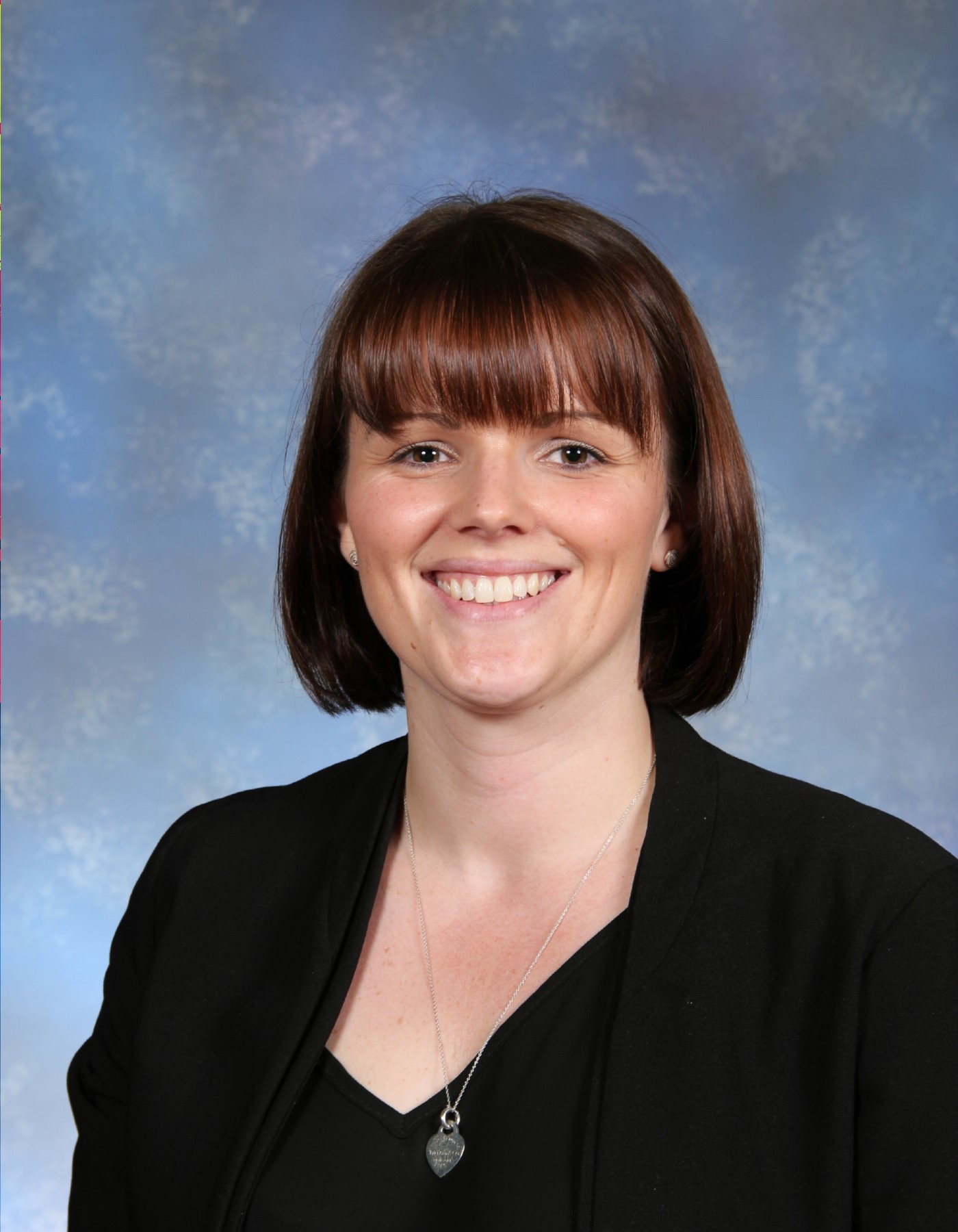
Mrs Simcoe - Director of English
Welcome to the English Department where a broad, engaging and diverse curriculum awaits, that challenges all students. Our curriculum is designed to inspire and support students to be the best that they can be allowing them to fulfil their potential and become informed and confident communicators. Our curriculum is structured to foster a love of Literature and reading as well as to encourage creativity and confident communicators.
Throughout each academic year, we aim to broaden the horizons of our students; our objective is to enhance students’ knowledge and understanding of the world through the study of a range of literature and non-fiction texts.
The curriculum structure will allow students to build on previous learning each year and ensures that new knowledge is relevant, challenging and engaging. We have a large team of subject specialist leaders, teachers and teaching assistants to ensure that no student gets left behind.
We intend to enable young people to develop character and make meaningful contributions to the community by enabling our pupils to become good communicators; developing skills of reading, writing and speaking and listening through our programmes of study. We will teach our pupils how to present balanced arguments and justify their responses. We will challenge misconceptions through choices of text. We will also uphold British cultural values throughout our programmes of study.
As our pupils leave Park, we envisage that they will be successful communicators who have achieved the very best that they can in our curriculum area. In turn, they will be able to access the next stage of their lives.
Key Stage 3
Throughout Key Stage 3 students will be taught a curriculum that is Literature-based and takes them on a journey through time beginning with Greek Mythology right through to modern times and beyond. English Language written tasks, as well as non-fiction texts, are interwoven throughout the curriculum and based around the Literature texts and topics that they are studying at the time.
What Year 7 will study:
Year 7 will begin the year by reading a range of autobiographical extracts and poems, before moving onto looking at some literature based around Greek mythology, when they will get the chance to express their creative side through some narrative writing. In the spring term we will look at some extracts from some of Shakespeare's most well-known plays before recreating some scenes from the play A Midsummer Nights' Dream. In the summer term, Year 7 will read a novel based on a rebellious protagonist, whilst also looking at some poetry and non-fiction texts that work well with the themes presented in these texts.
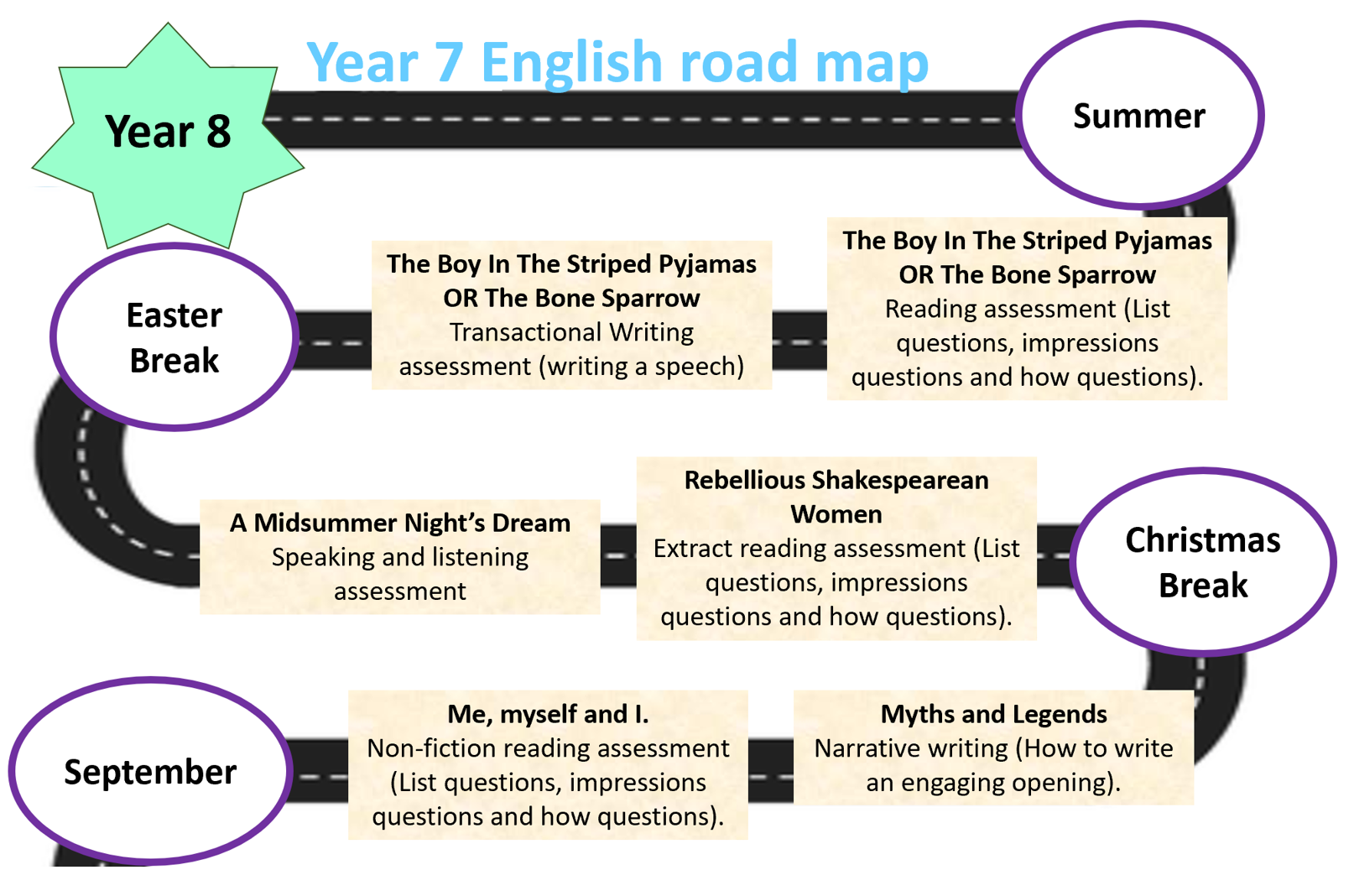
What Year 8 will study:
Year 8 will build on what they studied in Year 7 and will study a brave new world of literature, starting with the Romantic movement and the poetry created in that era. They will then move on to explore gothic fiction, including extracts from Frankenstein, before moving onto creating their own gothic story setting. In the spring term, Year 8 will move into the Victorian era and look at some of the works of Charles Dickens before reading 'The Signalman'. In the summer term, Year 8 will build on the work done in Year 7 on Shakespeare by reading the play Macbeth. In this scheme they will study some of the key themes in Macbeth, including witchcraft, and study some of our local history based on the same theme.
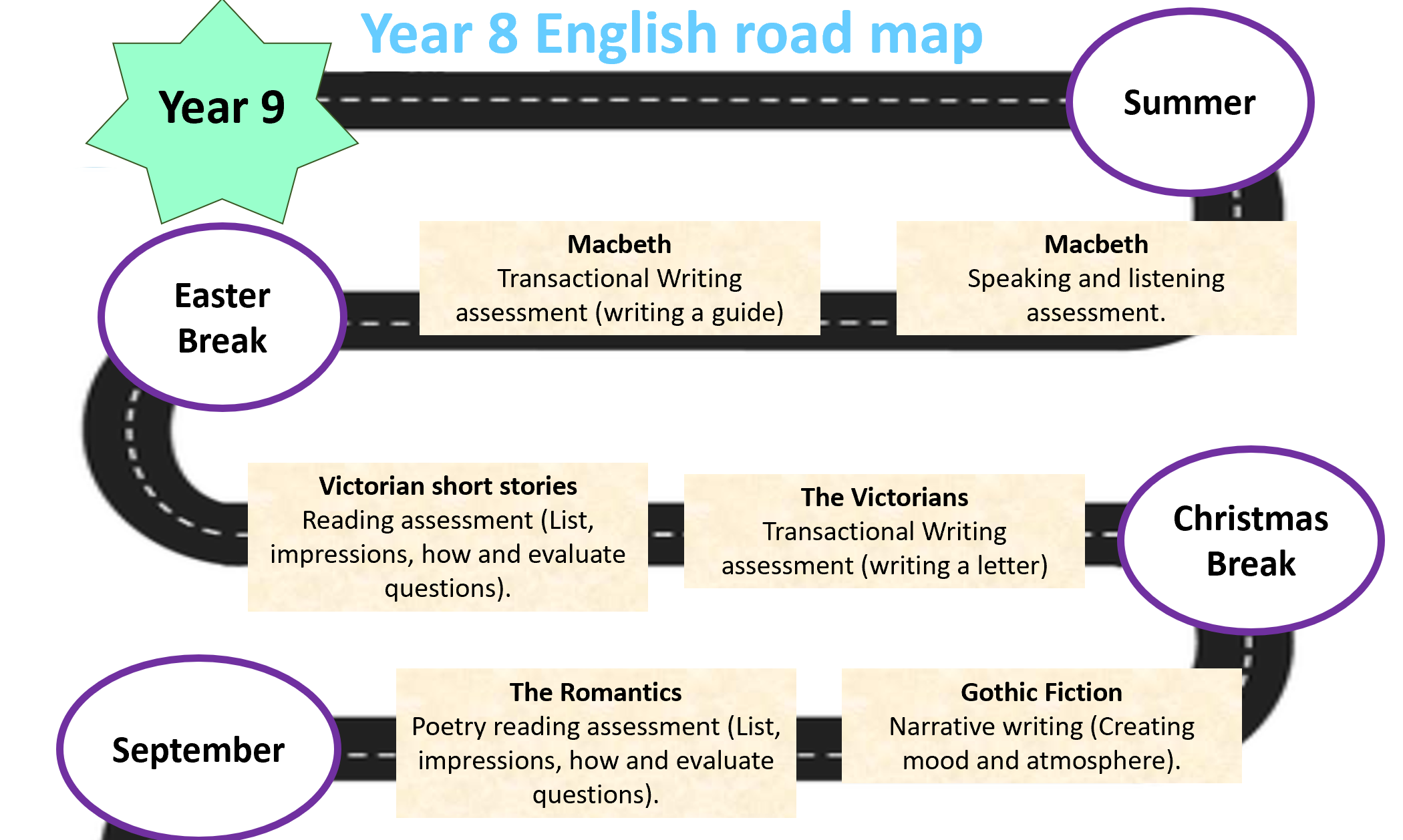
What Year 9 will study:
In Year 9, students will study Literature through a critical lens, starting with a modern prose text to support their reading comprehension, inference, analytical and evaluative skills. In the spring term, they will enhance their reading skills through the study of poetry and influential speeches. In the summer term, students will begin to make the transition to GCSE through the study of one of the key GCSE Literature texts, An Inspector Calls.
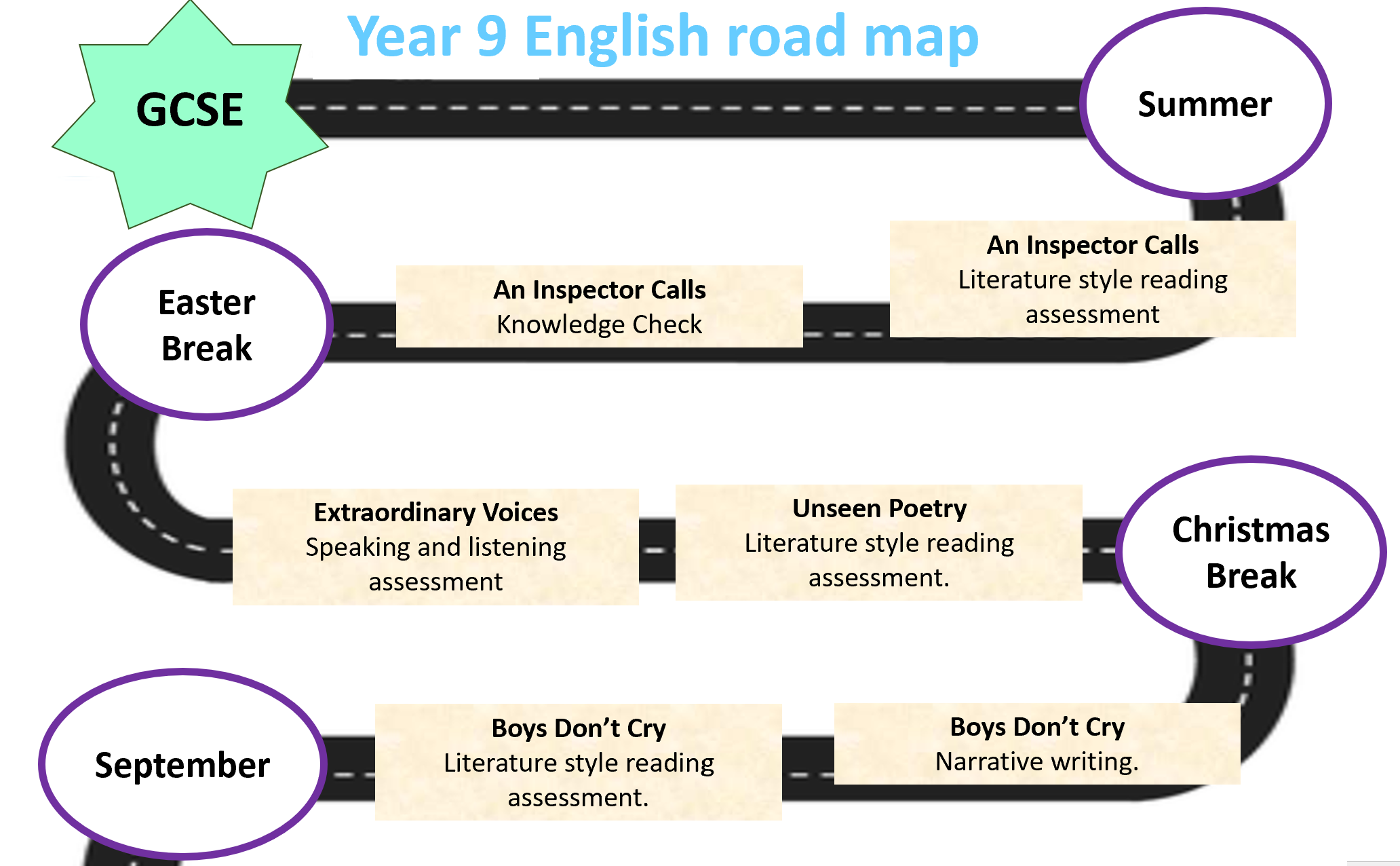
Assessment
Judgements based on Curriculum Related Expectations (CREs)
Judgements will be made by the English teacher based on assessments and classwork on the progression in the curriculum at the end of the Autumn, Spring and Summer Term. Teachers will report home progression in the English curriculum in terms of Beginning, Not Yet Expected Standard, working at the Expected Standard and working at Greater Depth.
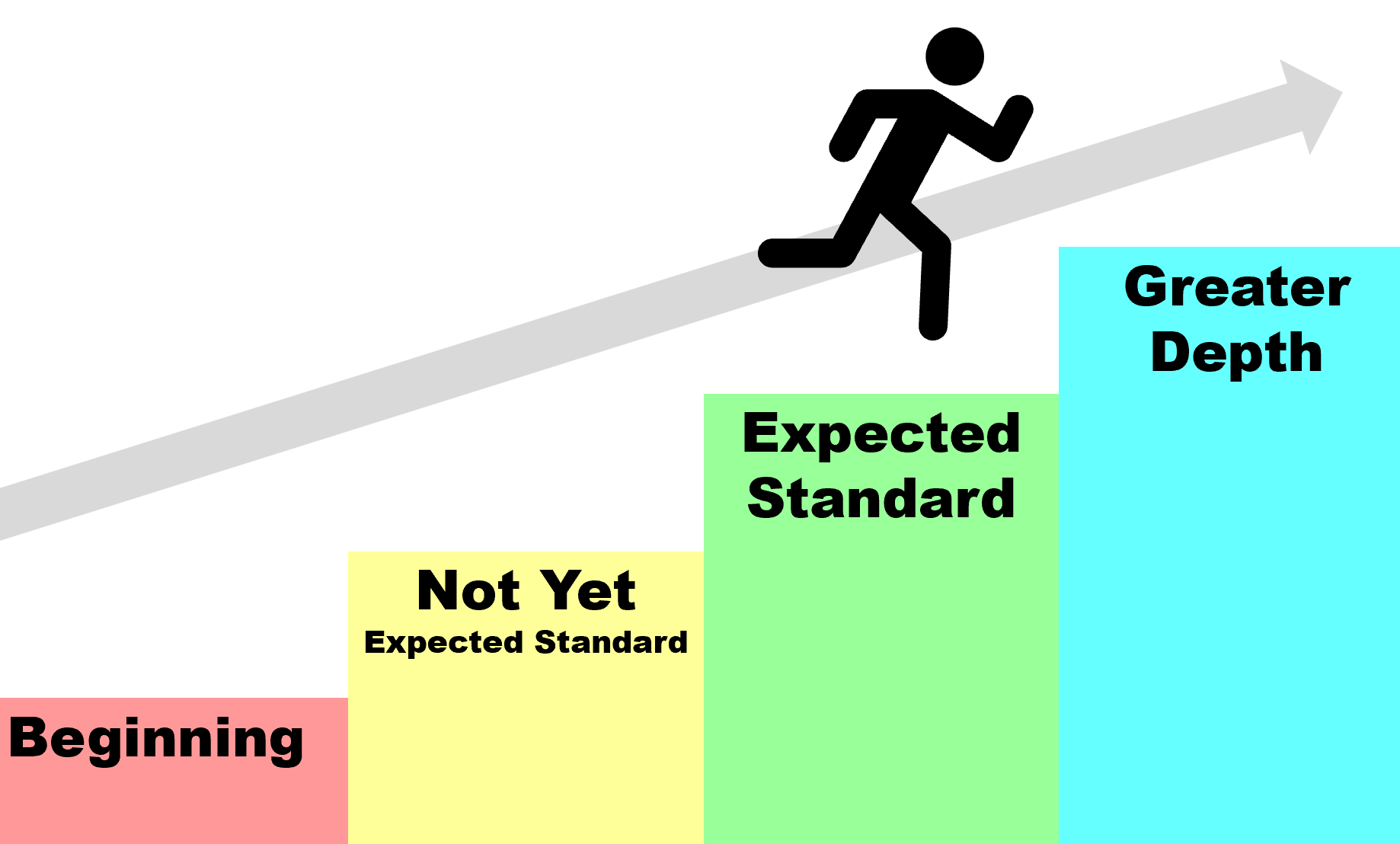
Year 7 CREs
Reading:
CRE 1 - To be able to retrieve a range of implicit and explicit information.
CRE 2 - To form accurate impressions and support them with relevant quotations.
CRE 3 - To track through a full text using connectives in responses to demonstrate this.
CRE 4 - To support all points with a range of quotations from the text
CRE 5 - To analyse the meaning and effect of language in the text
Writing:
CRE 1 - To apply spelling rules to spell most words correctly, including ambitious vocabulary
CRE 2 - To select and use a range of interesting and ambitious vocabulary
CRE 3 - To use a range of sentence types and starters
CRE 4 - To use basic and ambitious punctuation correctly
CRE 5 - To use a range of language devices appropriate for the genre and task
CRE 6 - To ensure writing is structured and organised in a way that is coherent
Year 8 CREs
Reading:
CRE 1 - To be able to retrieve a range of implicit and explicit information.
CRE 2 - To form accurate impressions and support them with relevant quotations.
CRE 3 - To track through a full text using connectives in responses to demonstrate this.
CRE 4 - To support all points with a range of quotations from the text
CRE 5 - To analyse the meaning and effect of language in the text
CRE 6 - To form an opinion on a text and state this clearly in an overview
CRE 7 - To support all opinions with relevant quotations from the text
Writing:
CRE 1 - To apply spelling rules to spell most words correctly, including ambitious vocabulary
CRE 2 - To select and use a range of interesting and ambitious vocabulary
CRE 3 - To use a range of sentence types and starters
CRE 4 - To use basic and ambitious punctuation correctly
CRE 5 - To use a range of language devices appropriate for the genre and task
CRE 6 - To ensure writing is structured and organised in a way that is coherent
Year 9 CREs
Reading:
CRE 1 - To be able to retrieve a range of implicit and explicit information.
CRE 2 - To form accurate impressions and support them with relevant quotations.
CRE 3 - To track through a full text using connectives in responses to demonstrate this.
CRE 4 - To support all points with a range of quotations from the text
CRE 5 - To analyse the meaning and effect of language in the text
CRE 6 - To form an opinion on a text and state this clearly in an overview
CRE 7 - To support all opinions with relevant quotations from the text
CRE 8 - To make relevant comparisons between two or more texts
Writing:
CRE 1 - To apply spelling rules to spell most words correctly, including ambitious vocabulary
CRE 2 - To select and use a range of interesting and ambitious vocabulary
CRE 3 - To use a range of sentence types and starters
CRE 4 - To use basic and ambitious punctuation correctly
CRE 5 - To use a range of language devices appropriate for the genre and task
CRE 6 - To ensure writing is structured and organised in a way that is coherent
Key Stage 4
At Key Stage 4 all students follow the Eduqas specification for both GCSE English Language and English Literature, which will be introduced in the latter part of Year 9 but will be taught and assessed throughout Year 10 and 11.
Students will be taught a number of set texts for GCSE English Literature including Shakespeare’s Romeo and Juliet, an anthology of 18 poems, JB Priestley’s, An Inspector Calls and Charles Dickens’ A Christmas Carol.
Year 10
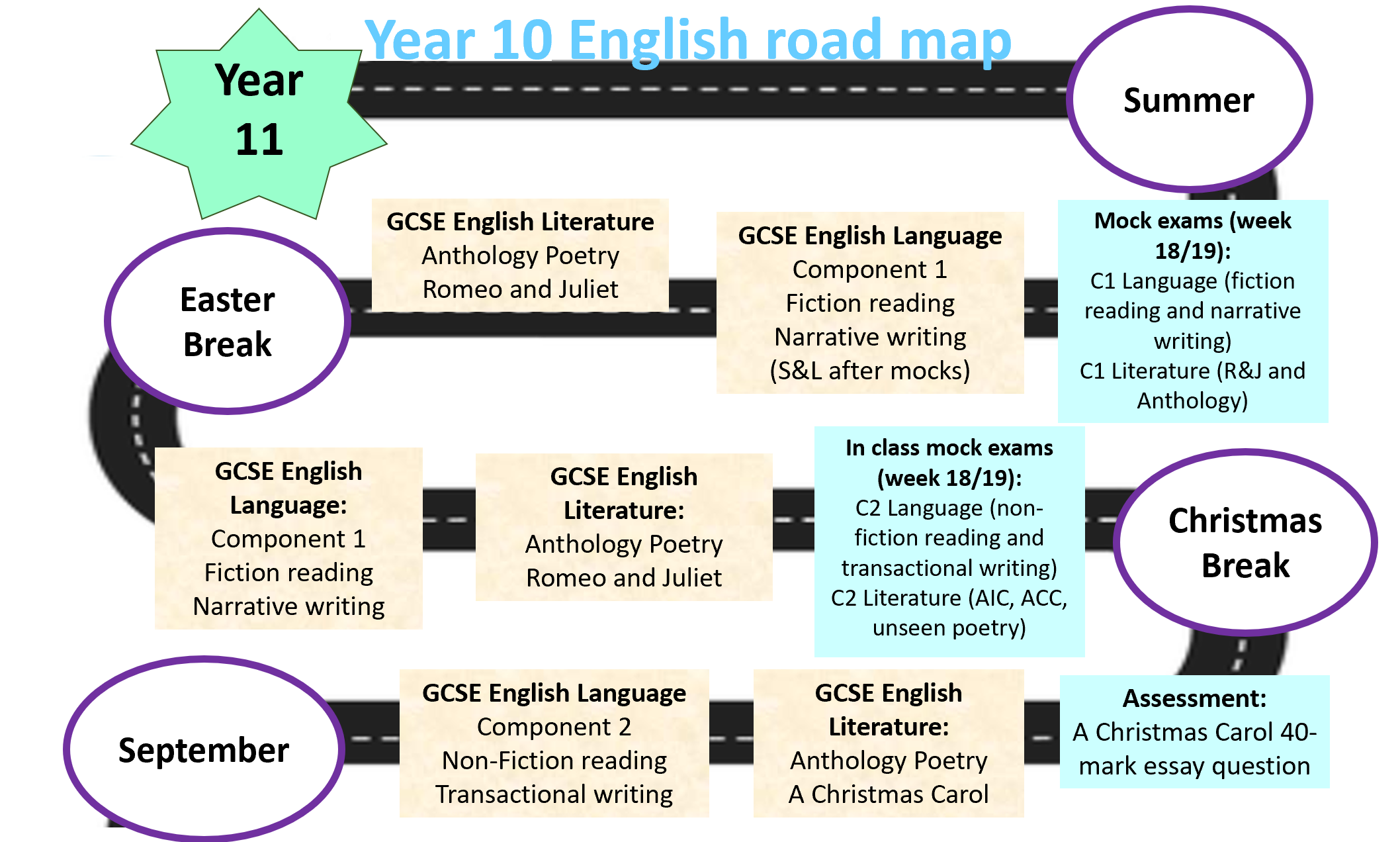
Year 11:
Year 11 follow an interleaving programme of study that consolidates all knowledge and understanding from Year 10. They will focus on applying this knowledge and practising exam skills. They will cover all key events, characters and themes from all literature texts studied and will also consolidate skills in all areas.
